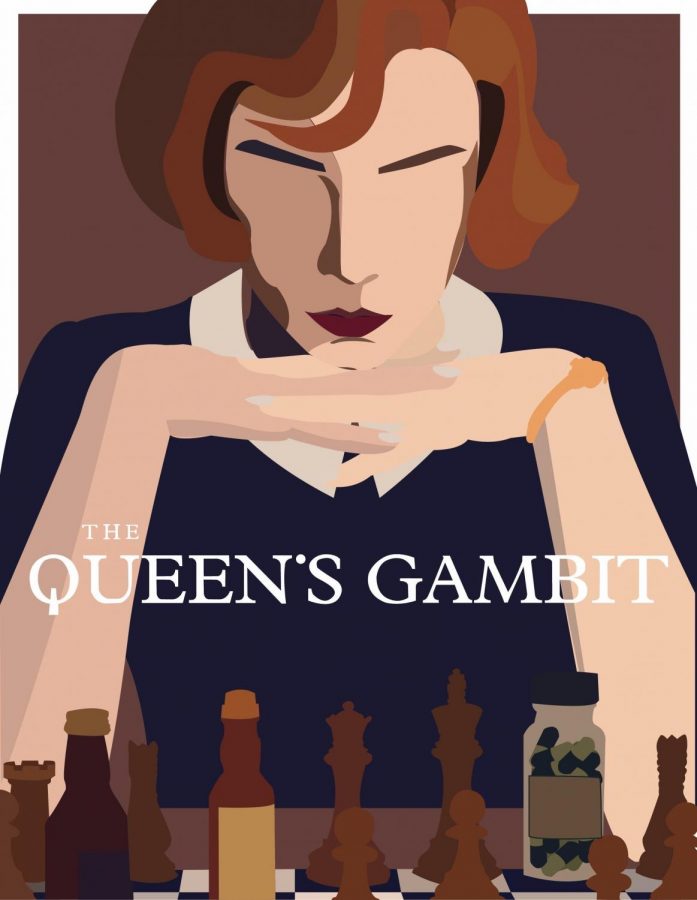The Queen’s Gambit – the turbulence that comes with prodigy
December 1, 2020
Released October 23rd, Netflix’s 7 part mini-series The Queen’s Gambit was definitely binge-worthy. Although most of the episodes averaged about 50 minutes, the complex story never felt dull. With characters coming and going from episodes, weaving into the complicated mind of Beth.
The story revolves around Beth Harmon, a redheaded who becomes an orphan at 9 years old. During her free time, she learns to play chess with the orphanage’s janitor. Once adopted as a pre-teen, she becomes one of the best players in the US. She travels the world, living a nice lifestyle. But being a child prodigy also comes with a price. Rising drug use, peaking alcoholism, manic episodes, and an ever-changing lifestyle, Elizabeth’s next step seems unpredictable, often on the verge of burnout.
The cinematography was dynamic. Extreme close-ups on, showing the slight changes in Beth’s expressions, as well as moving shots, circling her, showing her thought process while playing a game. Additionally, the sound mixing often enhanced the sound of chess pieces being placed, increasing the tension between players.
The set and costume design felt authentic. This series had many locations from Cincinnati, New York, Paris, and Mexico City. The hotels, homes, and characters were all extremely well thought out, matching the decade and location. Additionally, the high school, cars, outfits, and home decor matched the 60s throughout the beginning, the transition between decades, and then especially the many changes that came with the 70s.
Anya Taylor-Joy, who plays Elizabeth, was able to capture the almost-crazy look. Her pale skin, large eyes, and red hair all play into this very unique character that stands out from the rest of the competition. With a character with many addictive tendencies, Taylor-Joy was able to convey the manic episodes that come with addiction, withdrawal, and relapse throughout the show.
Although the audience watches her spiral, the show somehow creates a feeling of sympathy for her. This show was able to encompass the complexities behind the board game, while also creating a storyline that documented a girl coming of age.
Towards the end of the show, the chess-playing seems to take the background becoming less important, something mundane rather than riveting. Perhaps this is how Elizabeth was feeling as she had to continue to play.
All of these components made for an incredibly captivating and intriguing show. However, due to the label as a ‘limited series’, there it is not likely that there will be a season two.

